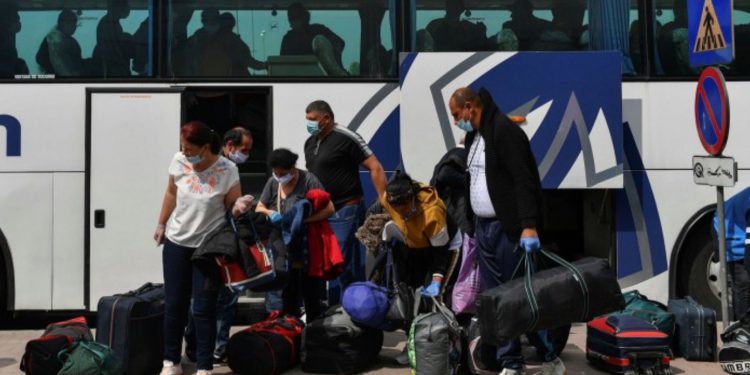The Financial Times reports that between March 2020 and February 2021, Focus on Labour Exploitation, an NGO, investigated the experience of workers in Scotland on the pilot programme, in a project part-funded by the Scottish government. FLEX surveyed 84 farm workers and interviewed 62 on 12 different farms, of which 39 were on the scheme.
The researchers found that more than half were on piece rates, and three-quarters felt like they were always or usually being pushed to do more work than was possible in the time they had. Two-thirds reported receiving threats of loss of work, 60 per cent said the information they were given about earnings before travelling proved inaccurate, and a similar proportion said they were refused transfers to other farms.
Some workers told the researchers they had resorted to buying boxes of produce from the fastest pickers, so that they could meet the farm’s target and be allowed to continue working. The workers could choose to go home early, but many had borrowed money back home to pay the visa and travel costs, sometimes from black market lenders.
FLEX also found that workers struggled to get assistance from their recruiting agencies or the Gangmasters and Labour Abuse Authority, the UK regulator which aims to protect exploited workers. The GLAA has 46 investigators in its enforcement teams, with one investigator and one inspector based in Scotland.
FLEX recommended removing the £244 visa fee for workers, guaranteeing them a minimum amount of work and income and increasing resources for labour market enforcement, among other measures.
A Home Office minister stated in a written parliamentary answer in 2019 that “the scheme operators are not permitted to offer zero-hours contracts to workers” but the Financial Times has seen worker contracts that do not guarantee any hours, including one titled “Terms and conditions of zero hours employment”. Castleton Fruit says the government statement is incorrect, and there are no stipulations against zero-hours contracts. The Home Office declined to answer the FT’s question on the issue.
While the FLEX research focused solely on Scotland, some workers on English farms have struggled with similar issues.
Florina Tudose, advocacy programme manager at the East European Resource Centre in London, says the organisation helped at least seven people who were already in the UK under free movement find roles through Concordia on farms close to the capital last year.
They had lost their jobs in the pandemic and were at risk of homelessness.
“Except for one young guy, all of them came back to us with the same story . . . they were on zero-hours contracts, and lots of the days they were sent back to their trailers because they didn’t meet the targets,” she says.
“We always knew the farming industry could be very exploitative, but in the first lockdown we thought that might be a better solution than being homeless,” she says. “Once a week they have this meeting where they tell the ones who received three warnings, or something like that, ‘you need to pack your bags and go because you’re not making your targets’.”























